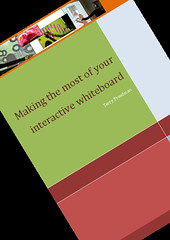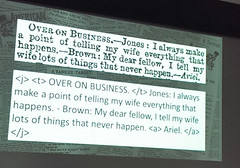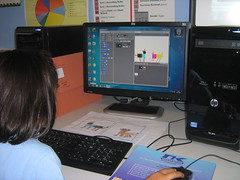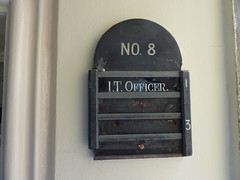I’m working on the next edition of Digital Education, and it contains some really great articles. For example, Mel Thompson asks whether philosophy should influence educational policy-making, which may seem a bit outré but, surprisingly enough, there is much that advocates of “computational thinking” would agree with I think.
Read MoreI find myself becoming increasingly irritated by people who say that we no longer need schools. The “argument”, if I can so dignify their pronouncements, seem to consist of the “logic” (ditto) that kids have lots of access to technology, and they can teach themselves how to use it, and therefore schools, and by extension teachers, are redundant.
Read MoreIt seems to me that the sense of belonging to an intellectual community is becoming less apparent in the staffroom, because of the need for schools to deliver on the latest half-baked, ill thought-out “initiative”
Read MoreBelieve it or not, I write about other stuff too! In case you’re interested, I’ve just published articles about a conference and a couple of books for authors
Read More In this series I’m going to be making some suggestions, putting out some ideas. These are based on presentations I’ve given. I can think of how these ideas, or their implications, might be applied in the classroom. However, I think it better if I stand back and let you do that part of the work!
In this series I’m going to be making some suggestions, putting out some ideas. These are based on presentations I’ve given. I can think of how these ideas, or their implications, might be applied in the classroom. However, I think it better if I stand back and let you do that part of the work! In this series I’m going to be making some suggestions, putting out some ideas. These are based on presentations I’ve given. I can think of how these ideas, or their implications, might be applied in the classroom. However, I think it better if I stand back and let you do that part of the work!
In this series I’m going to be making some suggestions, putting out some ideas. These are based on presentations I’ve given. I can think of how these ideas, or their implications, might be applied in the classroom. However, I think it better if I stand back and let you do that part of the work!










